The Samsung Galaxy Tab S2 Review
by Brandon Chester on October 15, 2015 8:00 AM ESTSystem Performance: GPU
While CPU performance characterizes one part of an SoC, GPU performance characterizes another. Tablets have long been a form factor where GPU performance can be pushed much further than in a phone due to the larger chassis of a tablet having far fewer size and thermal limitations. While some tablets elect to use specialized SoCs with more powerful GPU hardware than smartphones, the Tab S2 uses the same ARM Mali T760 GPU used in the Galaxy Note 4 Exynos.
To characterize the Tab S2's GPU performance I've run it through our standard GPU benchmarks. First up is 3DMark which actually has both a CPU and GPU component, followed by BaseMark X and GFXBench which focus more strongly on the GPU alone.
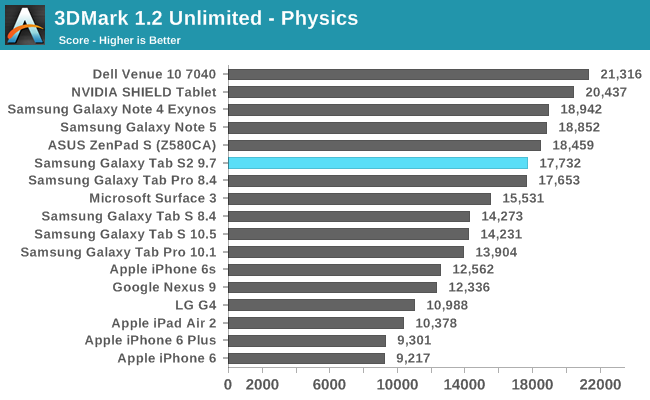
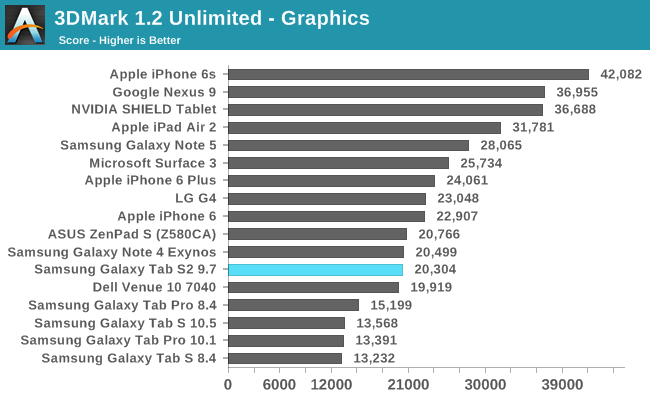
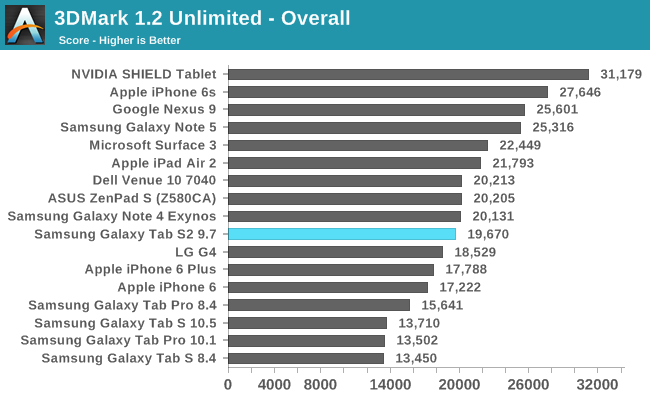
In 3DMark all of the Tab S2's scores are roughly equivalent to the Galaxy Note 4 Exynos which is not unexpected. Unfortunately, it's clear that Mali T760 can't keep up with NVIDIA's mobile Kepler implementation or Apple's custom 8 core PowerVR 6XT part. While the Nexus 9 and iPad Air 2 both fall short in the physics sub test their scores in the graphics sub test are in a completely different league than the Tab S2.
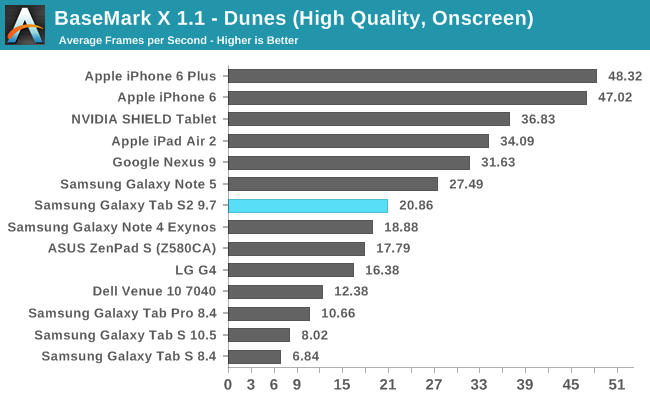
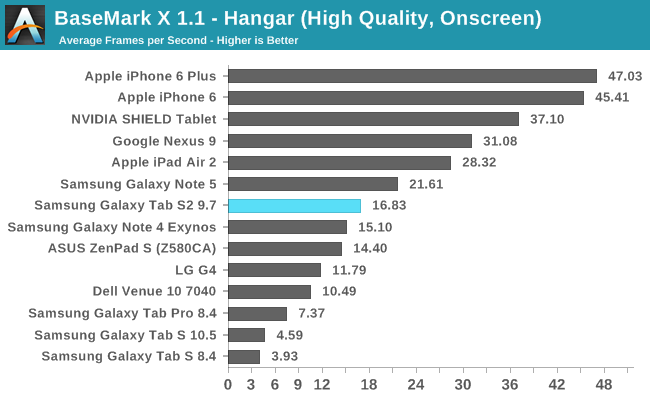
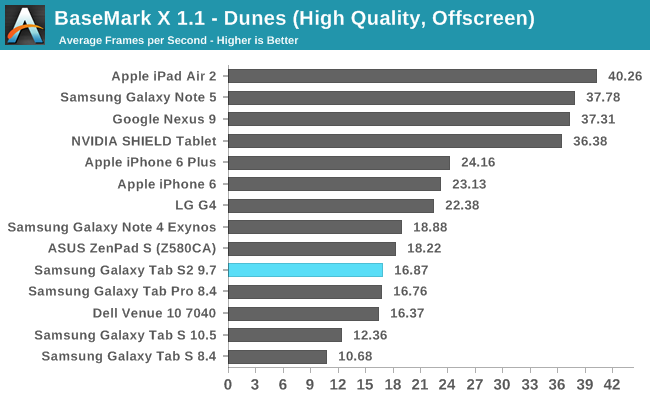
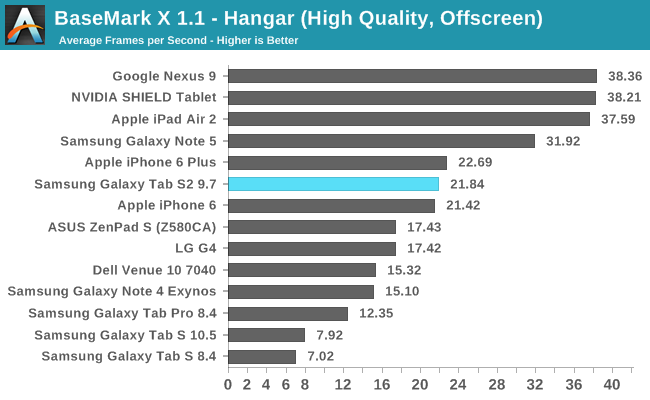
In BaseMark X we again see the Tab S2 sitting fairly far behind the iPad Air 2 and Nexus 9. If I was considering the Tab S2 8.0 which retails for $399 these results would be perfectly fine, as the major competition at that price point is the iPad Mini 4 which has Apple A8 SoC. At $499 the GPU performance simply isn't competitive, and it outlines the issues with trying to make one SoC fit many different devices.
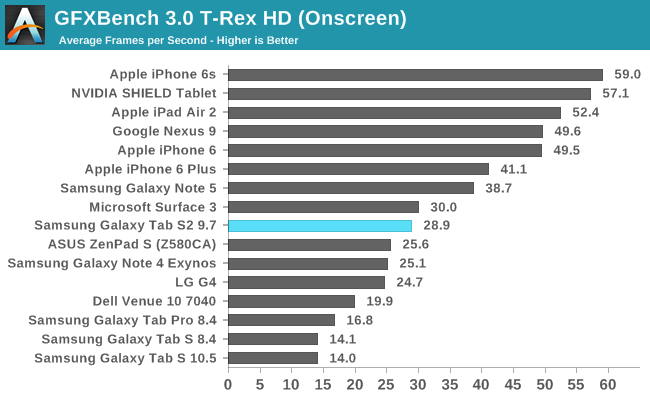
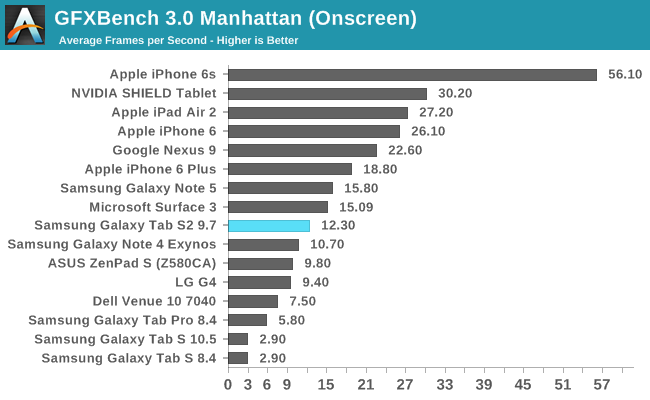
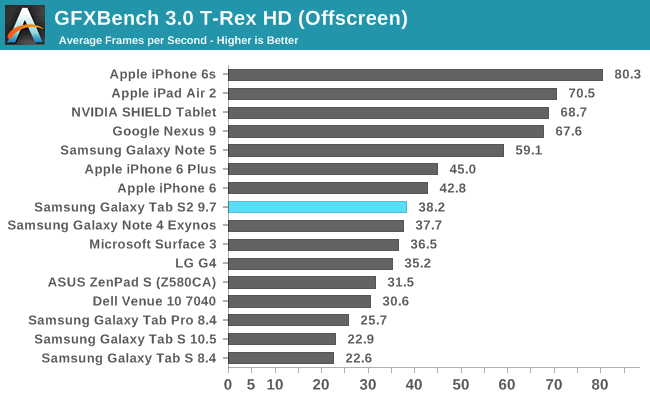
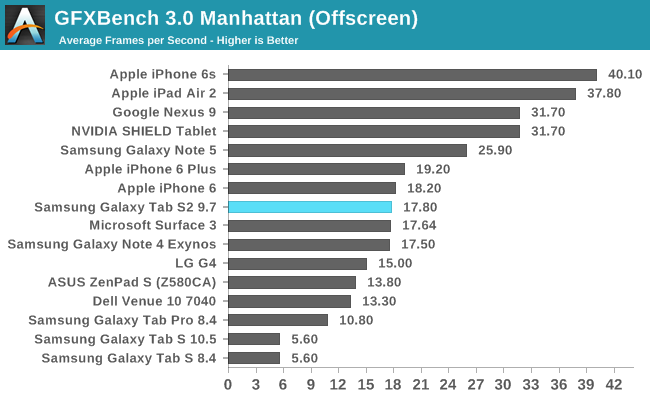
In GFXBench the Tab S2 is in the same situation as the previous tests. GPU performance is right around where the Galaxy Note 4 and iPhone 6 are, and it's just not good enough to justify the $499 price tag of the Tab S2.
Like I said on the last page, the fact that most Android tablet OEMs aren't providing CPU and GPU performance that is anywhere near competitive with the iPad Air 2 is a very bad thing for the entire tablet industry. Apple decided to not even update the iPad Air 2 despite it being a year old, and it's hard to blame them when nobody is close to them as far as performance is concerned. Having various manufacturers pushing each other to constantly improve is one of the primary drivers behind the advancements made in the mobile space, and I'm concerned that this no longer exists in the tablet market as the only tablets that come close are ones with NVIDIA's SoCs which also happen to be tablets that don't ship in very great volume.
System Performance: NAND
While it's still not advertised in specifications like on laptops, a mobile device's internal storage is now being recognized as a highly relevant part of overall system performance. Internal eMMC NAND solutions have traditionally had very poor storage performance, and different vendors have done different things to address the problem.
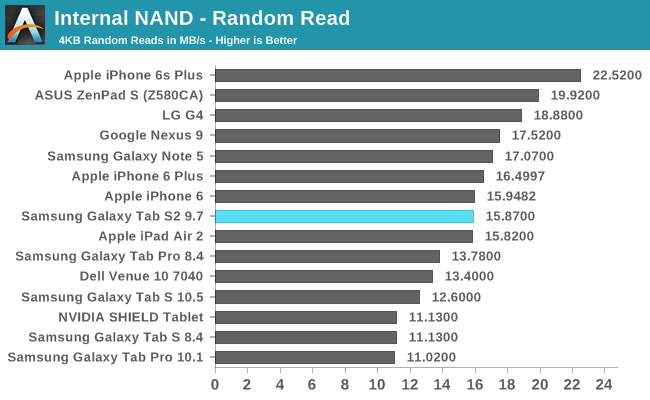
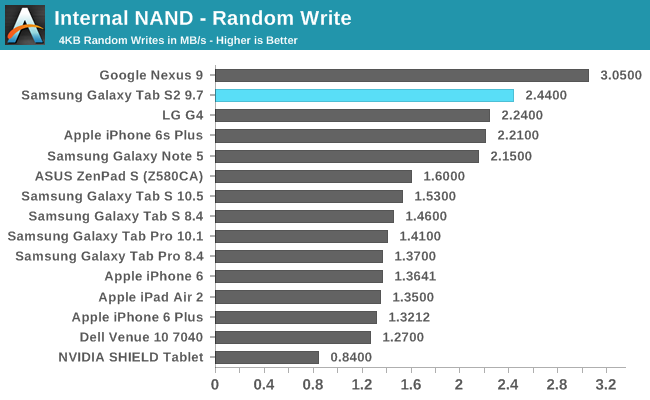
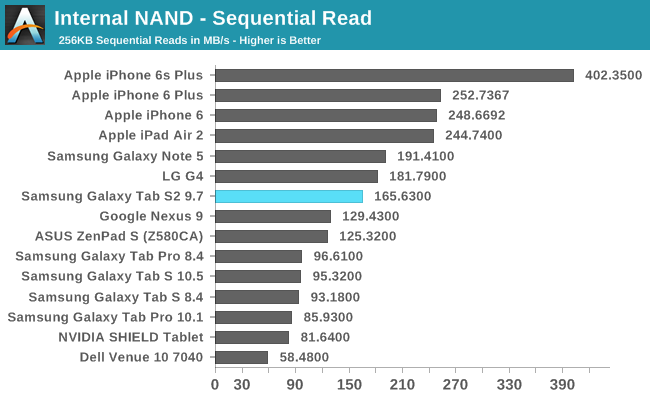
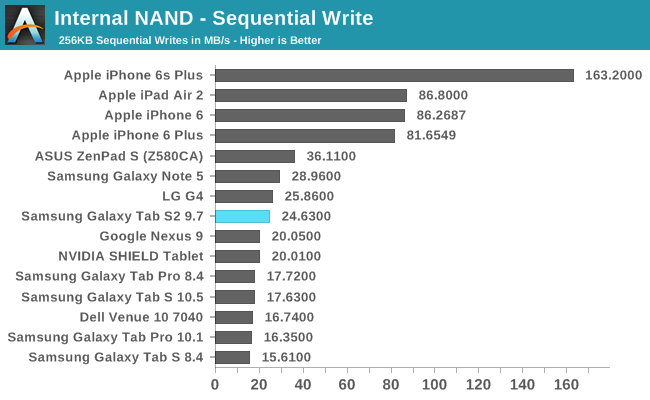
Both sets of read and write results are right around what you'd expect. Random writes in particular are very fast, and all the other results are fairly similar to those of the Galaxy Note 5. I don't expect internal NAND speeds will be a bottleneck on the Galaxy Tab S2, which is expected and fitting of a flagship tablet.










162 Comments
View All Comments
medi03 - Sunday, October 18, 2015 - link
Issue with iOS tablets, when their software updates in a year or two, what will that do to the overall performance of the system.theduckofdeath - Sunday, October 18, 2015 - link
Another issue with iOS updates is: Your year old iPad will never get the new cool software updates, only the version number.At least with Android, all cool updates are instant for everybody as they come through the Play Store.
Hephastion - Monday, October 19, 2015 - link
I bought an iPad Air for my wife, and a Samsung Galaxy Tab Pro 10.1 for myself (They were competing tables at the time) around the same time.The iPad air is still getting software updates from Apple and runs fine. My Galaxy Tab has received zilch from Samsung. It annoys the hell out of me. It's also a herky-jerky from a UI standpoint compared to the iPad.
I can go to Cyanogenmod, and probably will, but this is still a pain in the butt. Who knows how many security updates I'm missing as a result of Samsung's decision to provide almost nothing in the way of software updates for their tablets.
poopsmith - Wednesday, October 21, 2015 - link
And how much do you have to pay for said patches.Chaser - Thursday, October 15, 2015 - link
I've owned Android phones for years now as my preference. But tablet wise there's a reason why the iPad Air 2 is at the top from all the mainstream reviewers. In terms of development and support the iPad gets the most which equates to one of the most polished tablet experiences you can buy today.retrospooty - Thursday, October 15, 2015 - link
Yeah, the Air2 is a really sweet tablet I have to agree... IMO IOS is still kind of weak (improving each year, but still weak)... But the Air and Air2 are really great hardware.KoolAidMan1 - Saturday, October 17, 2015 - link
How are better apps, faster performance, guaranteed OS updates, and better security "weak"?"Better security" is an understatement since that's a ticking timebomb on Android: http://arstechnica.com/gadgets/2015/08/waiting-for...
medi03 - Sunday, October 18, 2015 - link
Yeah, like not being able to add exception hosts to a proxy settings.So comfortable, testers really appreciate it.
medi03 - Sunday, October 18, 2015 - link
Hardware is good, no doubt, but also quite a bit overpriced.And as far as screen quality goes, nothing (yet) beats Samsung's AMOLEDs.
Morawka - Sunday, October 18, 2015 - link
Dell's OLED sure do beat AMOLEDS any day